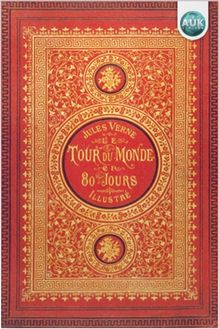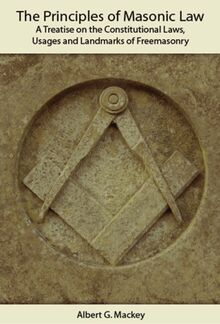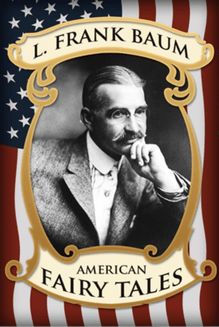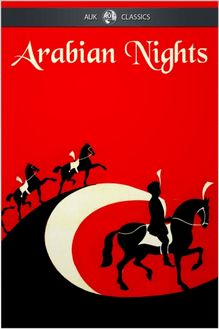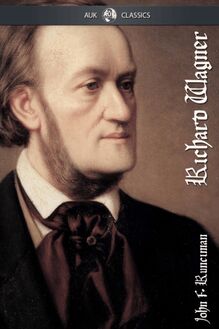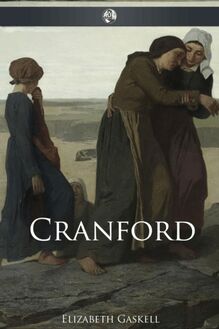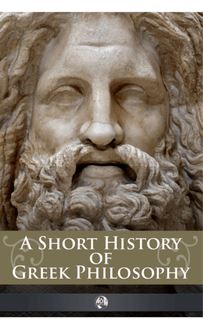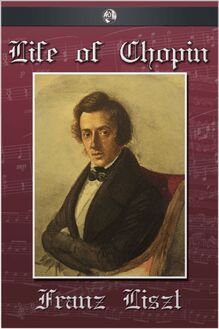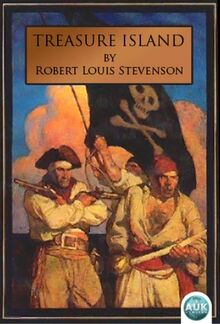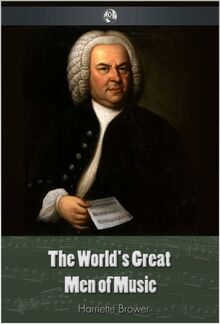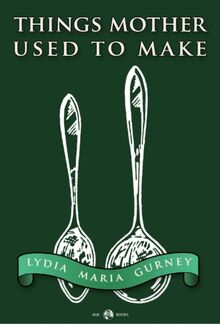World's Great Men Of Music , livre ebook
107
pages
English
Ebooks
2010
Vous pourrez modifier la taille du texte de cet ouvrage
Obtenez un accès à la bibliothèque pour le consulter en ligne En savoir plus
Découvre YouScribe en t'inscrivant gratuitement
Découvre YouScribe en t'inscrivant gratuitement
107
pages
English
Ebooks
2010
Vous pourrez modifier la taille du texte de cet ouvrage
Obtenez un accès à la bibliothèque pour le consulter en ligne En savoir plus
Publié par
Date de parution
18 septembre 2010
Nombre de lectures
1
EAN13
9781849892193
Langue
English
Publié par
Date de parution
18 septembre 2010
Nombre de lectures
1
EAN13
9781849892193
Langue
English
Title Page
THE WORLD’S
GREAT MEN OF MUSIC
By
Harriette Brower
Publisher Information
This electronic version published in 2010 by
Andrews UK Limited
www.andrewsuk.com
This edited version, including layout, typography, additions to text, cover artwork and other unique factors is copyright Andrews UK 2010. No part of this digital publication may be reproduced, stored in a retrieval system or transmitted in any form or by any means electronic, mechanical, photocopying, recording or otherwise without written permission of the copyright owner.
Foreword
The preparation of t his volume began with a period of delightful research work in a great musical library. As a honey-bee flutters from flower to flower, culling sweetness from many blossoms, so the compiler of such stories as these must gather facts from many sources - from biography, letters, journals and musical history. Then, impressed with the personality and individual achievement of each composer, the author has endeavored to present his life story.
While the aim has been to make the story-sketches interesting to young people, the author hopes that they may prove valuable to musical readers of all ages. Students of piano, violin or other instruments need to know how the great composers lived their lives. In every musical career described in this book, from the old masters represented by Bach and Beethoven to the musical prophets of our own day, there is a wealth of inspiration and practical guidance for the artist in any field. Through their struggles, sorrows and triumphs, divine melody and harmony came into being, which will bless the world for all time to come.
Palestrina
To learn something of the life and labors of Palestrina, one of the earliest as well as one of the greatest musicians, we must go back in the world’s history nearly four hundred years. And even then we may not be able to discover all the events of his life as some of the records have been lost. But we have the main facts, and know that Palestrina’s name will be revered for all time as the man who strove to make sacred music the expression of lofty and spiritual meaning.
Upon a hoary spur of the Apennines stands the crumbling town of Palestrina. It is very old now; it was old when Rome was young. Four hundred years ago Palestrina was dominated by the great castle of its lords, the proud Colonnas. Naturally the town was much more important in those days than it is to-day.
At that time there lived in Palestrina a peasant pair, Sante Pierluigi and his wife Maria, who seem to have been an honest couple, and not grindingly poor, since the will of Sante’s mother has lately been found, in which she bequeathed a house in Palestrina to her two sons. Besides this she left behind a fine store of bed linen, mattresses and cooking utensils. Maria Gismondi also had a little property.
To this pair was born, probably in 1526, a boy whom they named Giovanni Pierluigi, which means John Peter Louis. This boy, from a tiniest child, loved beauty of sight and sound. And this is not at all surprising, for a child surrounded from infancy by the natural loveliness and glory of old Palestrina, would unconsciously breathe in a sense of beauty and grandeur.
It was soon discovered the boy had a voice, and his mother is said to have sold some land she owned to provide for her son’s musical training.
From the rocky heights on which their town was built, the people of Palestrina could look across the Campagna - the great plain between - and see the walls and towers of Rome. At the time of our story, Saint Peter’s had withstood the sack of the city, which happened a dozen years before, and Bramante’s vast basilica had already begun to rise. The artistic life of Rome was still at high tide, for Raphael had passed away but twenty years before, and Michaelangelo was at work on his Last Judgment.
Though painting and sculpture flourished, music did not keep pace with advance in other arts. The leading musicians were Belgian, Spanish or French, and their music did not match the great achievements attained in the kindred art of the time - architecture, sculpture and painting. There was needed a new impetus, a vital force. Its rise began when the peasant youth John Peter Louis descended from the heights of Palestrina to the banks of the Tiber.
It is said that Tomasso Crinello was the boy’s master; whether this is true or not, he was surely trained in the Netherland manner of composition.
The youth, whom we shall now call Palestrina, as he is known by the name of his birthplace, returned from Rome at the age of eighteen to his native town, in 1544, as a practising musician, and took a post at the Cathedral of Saint Agapitus. Here he engaged himself for life, to be present every day at mass and vespers, and to teach singing to the canons and choristers. Thus he spent the early years of his young manhood directing the daily services and drumming the rudiments of music into the heads of the little choristers. It may have been dry and wearisome labor; but afterward, when Palestrina began to reform the music of the church, it must have been of great advantage to him to know so absolutely the liturgy, not only of Saint Peter’s and Saint John Lateran, but also that in the simple cathedral of his own small hill-town.
Young Palestrina, living his simple, busy life in his home town, never dreamed he was destined to become a great musician. He married in 1548, when he was about twenty-two. If he had wished to secure one of the great musical appointments in Rome, it was a very unwise thing for him to marry, for single singers were preferred in nine cases out of ten. Palestrina did not seem to realize this danger to a brilliant career, and took his bride, Lucrezia, for pure love. She seems to have been a person after his own heart, besides having a comfortable dowry of her own. They had a happy union, which lasted for more than thirty years.
Although he had agreed to remain for life at the cathedral church of Saint Agapitus, it seems that such contracts could be broken without peril. Thus, after seven years of service, he once more turned his steps toward the Eternal City.
He returned to Rome as a recognized musician. In 1551 he became master of the Capella Giulia, at the modest salary of six scudi a month, something like ten dollars. But the young chapel master seemed satisfied. Hardly three years after his arrival had elapsed, when he had written and printed a book containing five masses, which he dedicated to Pope Julius III. This act pleased the pontiff, who, in January, 1555, appointed Palestrina one of the singers of the Sistine Chapel, with an increased salary.
It seems however, that the Sistine singers resented the appointment of a new member, and complained about it. Several changes in the Papal chair occurred at this time, and when Paul IV, as Pope, came into power, he began at once with reforms. Finding that Palestrina and two other singers were married men, he put all three out, though granting an annuity of six scudi a month for each.
The loss of this post was a great humiliation, which Palestrina found it hard to endure. He fell ill at this time, and the outlook was dark indeed, with a wife and three little children to provide for.
But the clouds soon lifted. Within a few weeks after this unfortunate event, the rejected singer of the Sistine Chapel was created Chapel Master of Saint John Lateran, the splendid basilica, where the young Orlandus Lassus had so recently directed the music. As Palestrina could still keep his six scudi pension, increased with the added salary of the new position, he was able to establish his family in a pretty villa on the Coelian Hill, where he could be near his work at the Lateran, but far enough removed from the turmoil of the city to obtain the quiet he desired, and where he lived in tranquillity for the next five years.
Palestrina spent forty-four years of his life in Rome. All the eleven popes who reigned during this long period honored Palestrina as a great musician. Marcellus II spent a part of his three weeks’ reign in showing kindness to the young Chapel master, which the composer returned by naming for this pontiff a famous work, “Mass of Pope Marcellus.” Pius IV, who was in power when the mass was performed, praised it eloquently, saying John Peter Louis of Palestrina was a new John, bringing down to the church militant the harmonies of that “new song” which John the Apostle heard in the Holy City. The musician-pope, Gregory XIII, to whom Palestrina dedicated his grandest motets, entrusted him with the sacred task of revising the ancient chant. Pope Sixtus V greatly praised his beautiful mass, “Assumpta est Maria” and promoted him to higher honors.
With this encouragement and patronage, Palestrina labored five years at the Lateran, ten years at Santa Maria Maggiore and twenty three at Saint Peter’s. At the last named it was his second term, of course, but it continued from 1571 to his death. He was happy in his work, in his home and in his friends. He also saved quite a little money and was able to give his daughter-in-law, in 1577, 1300 scudi; he is known indeed, to have bought land, vineyards and houses in and about Rome.
All was not a life of sunshine for Palestrina, for he suffered many domestic sorrows. His three promising sons died one after another. They were talented young men, who might have followed in the footsteps of their distinguished father. In 1580 his wife died also. Yet neither poignant sorrow, worldly glory nor ascetic piety blighted his homely affections. At the Jubilee of Pope Gregory XIII, in 1575, when 1500 pilgrims from the town of Palestrina descended the hills on the way to Rome, it was their old townsman, Giovanni Pierlui

